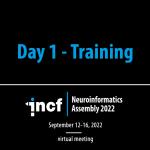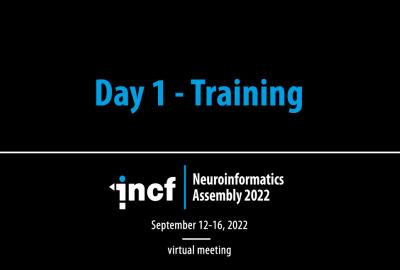This course outlines how versioning code, data, and analysis software is crucially important to rigorous and open neuroscience workflows that maximize reproducibility and minimize errors.Version control systems, code-capable notebooks, and virtualization containers such as Git, Jupyter, and Docker, respectively, have become essential tools in data science.
Versioning & Containerization
This talk highlights a set of platform technologies, software, and data collections that close and shorten the feedback cycle in research.
This presentation by the OHBM OpenScienceSIG covers common scenarios where Git can be extremely valuable. The essentials covered include cloning a repository and keeping it up to date, how to create and use your own repository, and how to contribute to other projects via forking and pull requests.
This tutorial covers the fundamentals of collaborating with Git and GitHub.
This lesson describes how DataLad allows you to track and mange both your data and analysis code, thereby facilitating reliable, reproducible, and shareable research.
DataLad is a versatile data management and data publication multi-tool. In this session, you can learn the basic concepts and commands for version control and reproducible data analysis. You’ll get to see, create, and install DataLad datasets of many shapes and sizes, master local version workflows and provenance-captured analysis-execution, and you will get ideas for your next data analysis project.
This lecture provides an introduction to the Brain Imaging Data Structure (BIDS), a standard for organizing human neuroimaging datasets.
Presented by the OHBM OpenScienceSIG, this lesson covers how containers can be useful for running the same software on different platforms and sharing analysis pipelines with other researchers.
This lesson gives a tour of how popular virtualization tools like Docker and Singularity are playing a crucial role in improving reproducibility and enabling high-performance computing in neuroscience.








